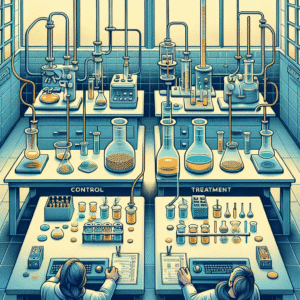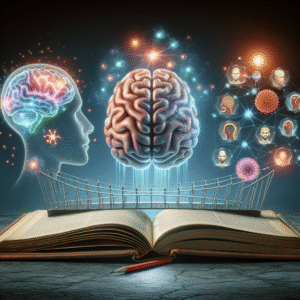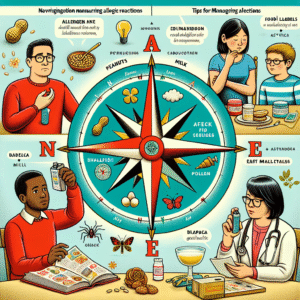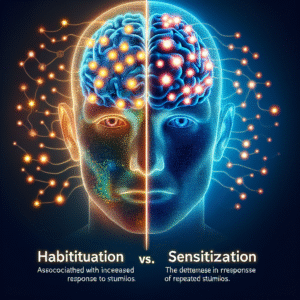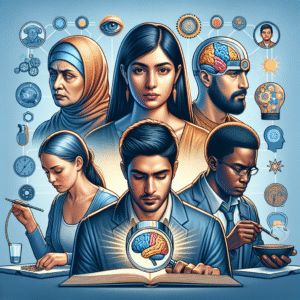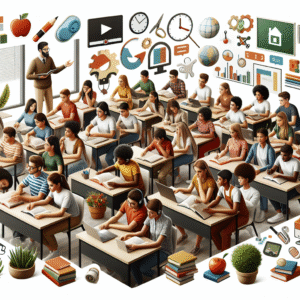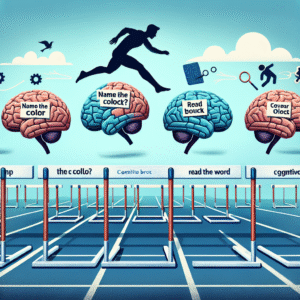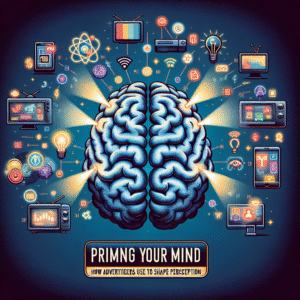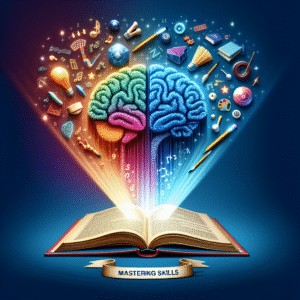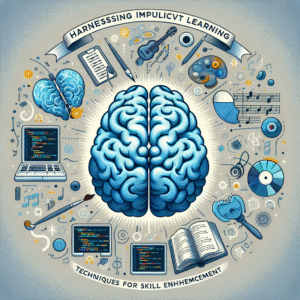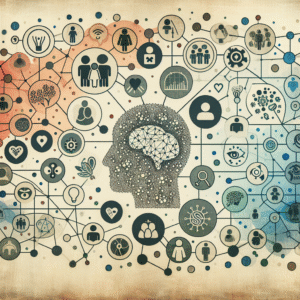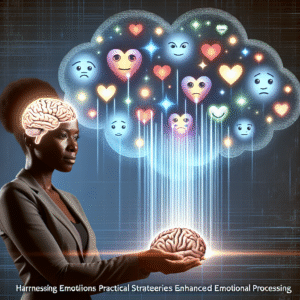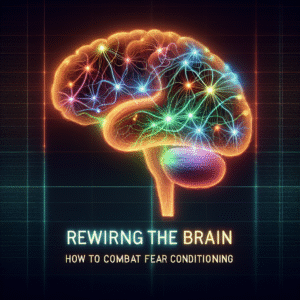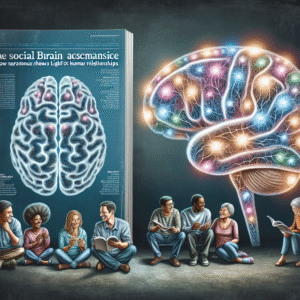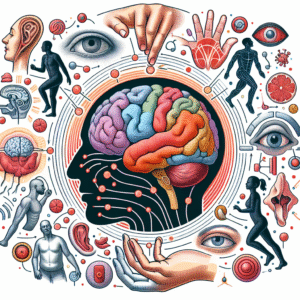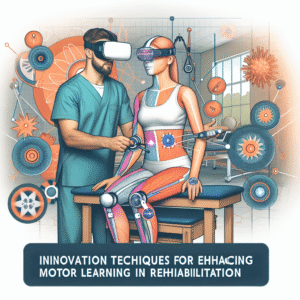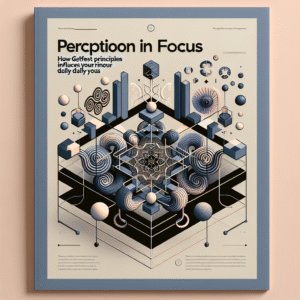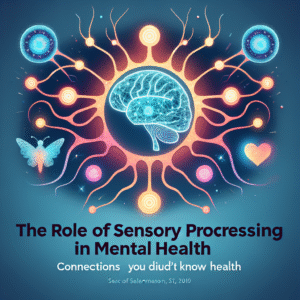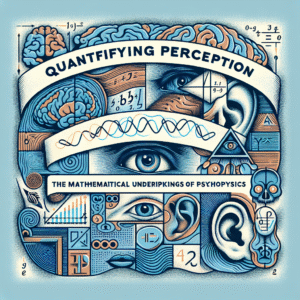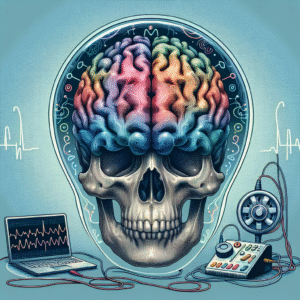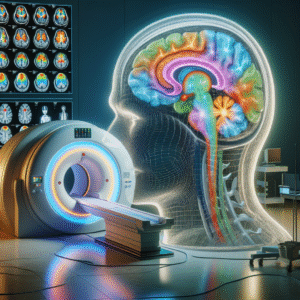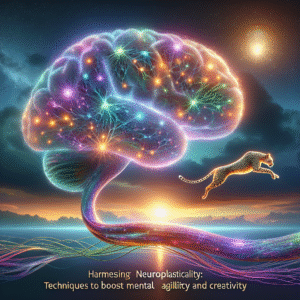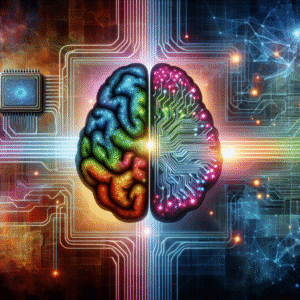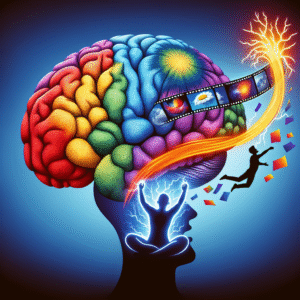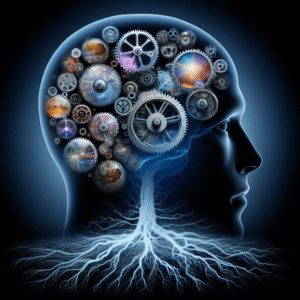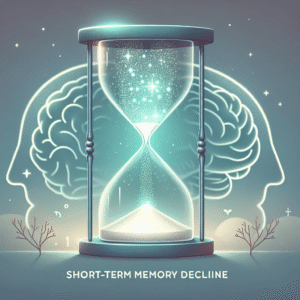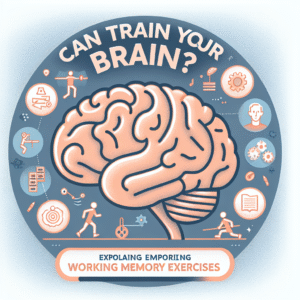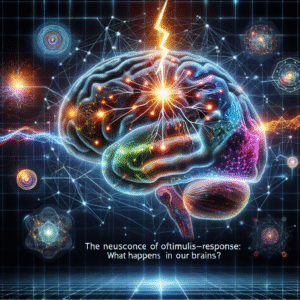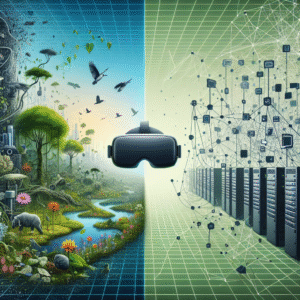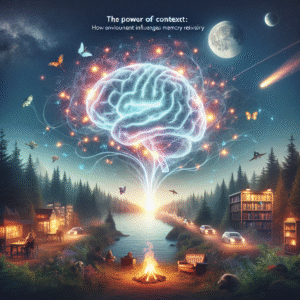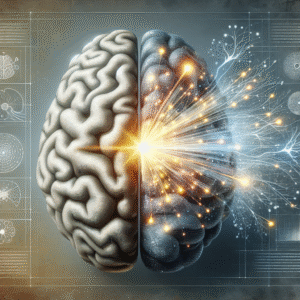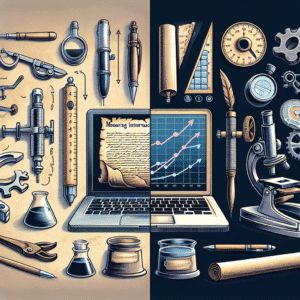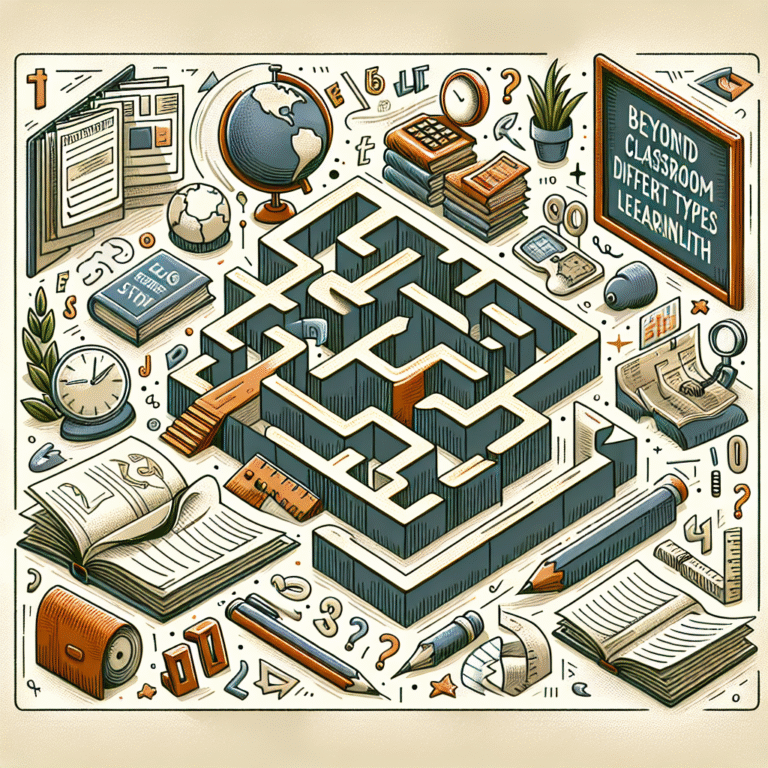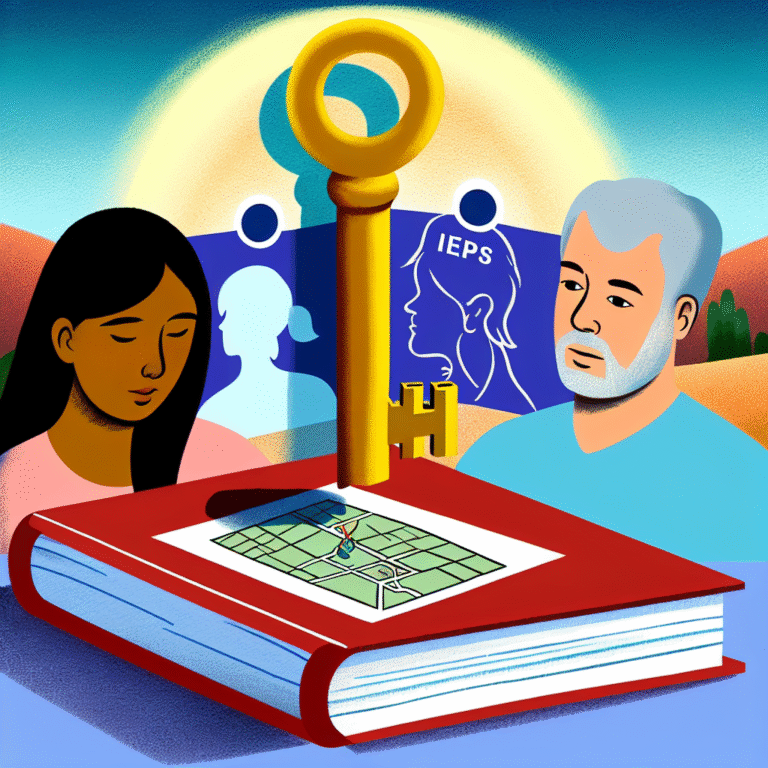In today’s complex work environment, understanding the interplay of human psychology and organizational behavior is more crucial than ever. One of the most overlooked yet potent aspects of this interplay is the impact of cognitive biases. Cognitive biases shape how leaders make decisions and how teams interact, ultimately driving performance, creativity, and employee satisfaction. This article dives deep into...
Habituation
Introduction In today’s fast-paced world, the ability to solve problems effectively is more crucial than ever. As challenges become increasingly complex, organizations are discovering that problem solving in teams: harnessing collective intelligence can lead to innovative solutions that far exceed what any individual could achieve alone. Imagine a scenario where diverse minds come together, each contributing unique perspectives and...
Introduction We’ve all made mistakes. Whether in our personal lives, at work, or in our relationships, poor decisions can lead to regret and frustration. However, what if I told you that mistakes could be your greatest teachers? The journey of life is paved with errors, and instead of viewing these missteps as failures, we can see them as essential...
In today’s rapidly evolving world, the approach to learning has seen transformative shifts. The emphasis on efficiency and effectiveness is paramount, especially in an era saturated with information. The Psychology Behind Reinforcement: Crafting Effective Learning Schedules emerges as a guiding principle, directing educators, trainers, and students towards optimized learning experiences. This article delves into the insightful realms of reinforcement...
Introduction Imagine being able to unlock the full potential of your mind, gaining control over behaviors both personally and professionally. The power to reshape actions, habits, and ultimately, life itself lies in understanding operant conditioning. This fascinating psychological concept offers incredible insights into how behaviors are learned and modified through the framework of rewards and punishments. In the coming...
Introduction Have you ever felt a surge of panic at the mere sight of a spider? Or perhaps your heart races when you step onto an elevator? Such fear responses often stem from our experiences, shaped by a process known as classical conditioning. Understanding "The Role of Classical Conditioning in Phobias and Fear Responses" can unveil the complexities behind...
Introduction Have you ever wondered why animals react the way they do to certain stimuli? The fascinating world of animal behavior is closely intertwined with the concept of stimulus response, revealing not just survival strategies but also the intricate workings of their minds. Understanding the principles of stimulus response in animals is not merely an academic pursuit; it holds...
Introduction: The Critical Moment In the split-second moments that define our driving experiences, the difference between safety and catastrophe can often be measured in milliseconds. Every time we take to the road, we engage in a race against time—not just our own schedules, but against the unexpected events around us. In this high-speed environment, race against time: how reaction...
Introduction In the rapidly evolving landscape of artificial intelligence (AI) and machine learning (ML), the ability to sift through vast amounts of data and derive meaningful insights has never been more critical. Navigating Complexity: How Attention Mechanisms Simplify Machine Learning Tasks serves as a beacon in this intricate terrain, shedding light on how attention mechanisms enhance the efficiency and...
Introduction In the world of research, participant sampling is often the unsung hero of effective studies. Whether you’re surveying a population or conducting in-depth interviews, the success of your research hinges on the sampling methods you employ. In this comprehensive guide, we will explore how to analyze your participant sampling: best practices for researchers. This guide isn’t just another...
Introduction Imagine a world where every medical treatment, social policy, and educational intervention is evaluated through the lens of fairness and scientific rigor. Random assignment, a cornerstone of experimental design, promises to deliver this vision by ensuring that participants are assigned to different groups without bias. However, this powerful method brings with it a host of ethical considerations that...
In the realm of scientific inquiry, understanding the nuances of experimental research can make the difference between groundbreaking insights and misleading conclusions. Among these nuances, the role of control groups stands out as a beacon of rigor and reliability. But why do they matter so much? This article delves into the essential role of control groups and their profound...
Introduction In a world that increasingly leans towards digitization, the intersection of technology and accessibility is more crucial than ever. Eye Tracking and Accessibility: Enhancing Technology for All is not just a catchphrase—it’s a pivotal movement that focuses on utilizing innovative eye-tracking technologies to empower those with disabilities. As we delve into this topic, you’ll discover how eye tracking...
Introduction Imagine you can peer into a person’s mind, mapping their thoughts, emotions, and reactions in real-time. This might sound like something out of a science fiction novel, but thanks to the advancements in neuroscience and psychology, we are achieving new insights every day. Event Related Potentials (ERPs) serve as a powerful bridge, connecting our understanding of psychological phenomena...
Introduction In our increasingly interconnected world, allergic reactions have become a widespread concern that affects millions of individuals. Whether it’s pollen making you sneeze during spring or a nut causing serious health issues, navigating sensitization can often feel overwhelming. Understanding how to manage allergic reactions is not just important—it’s essential for leading a fulfilling life. In this article, we...
Introduction In a world brimming with stimuli, our ability to respond appropriately to our environment is crucial. This skill hinges on two fundamental neurological processes: habituation and sensitization. So, you might wonder, what exactly differentiates these two phenomena? Understanding the nuances of habituation vs. sensitization: understanding the differences will not only clarify how we interact with the world but...
Introduction In a world continually bombarded by notifications, emails, and a never-ending stream of digital content, the concept of divided attention has never been more relevant. Have you ever found yourself scrolling through social media while participating in a work meeting? Or maybe you’ve tried to read a book while your phone buzzes insistently in your pocket. These moments...
Introduction Have you ever tried to study while your favorite show is playing in the background? If so, you’ve likely experienced the phenomenon of selective attention. It’s a critical aspect of our cognitive ability and directly affects our learning capabilities. Understanding selective attention and its impact on learning can be the key to unlocking your academic and professional potential....
Introduction In today’s rapidly evolving educational landscape, the necessity for engaging teaching methods has never been more crucial. With distractions at every turn—from smartphones to social media—students often find it challenging to focus, leading to decreased retention and understanding of material. This is where the power of visual attention in the classroom comes into play. By leveraging visual strategies,...
Introduction Imagine you’re in a crowded room, and someone asks you to name the colors of words displayed on a screen, but there’s a twist: the words spell out colors different from what they actually represent. For example, the word "red" is printed in blue ink. This cognitive challenge is known as the Stroop Effect, a phenomenon that wowed...
Introduction In today’s fast-paced world, where advertisements bombard us at every turn, the question arises: how do they manage to capture our attention, influence our decisions, and shape our perceptions? The answer lies in a fascinating psychological concept known as "priming." Understanding this can empower consumers and marketers alike. This article dives deep into Priming Your Mind: How Advertisers...
Introduction In a world where acquiring new skills is more vital than ever, understanding the nuances of skill acquisition is crucial. Whether it’s learning a new language, mastering a musical instrument, or developing a professional competency, the journey is often complex and multifaceted. Among the various methods to facilitate this journey, explicit learning stands out as a powerful tool....
Introduction Imagine picking up a new sport or musical instrument and finding yourself performing at a higher level than you thought possible. The secret may lie in a phenomenon known as implicit learning, which allows individuals to acquire skills unconsciously through practice and experience without direct instruction. In our fast-paced world, understanding and harnessing implicit learning can be the...
Introduction In the tapestry of human interaction, the intricacies of relationships can often dictate the quality of our personal and professional lives. Imagine a world where misunderstandings are rare, empathy flows freely, and connections deepen effortlessly. Central to this vision is the concept of social cognition—the mental processes through which we perceive, interpret, and understand social situations. This article...
Introduction Imagine navigating life’s challenges with grace and resilience, tapping into your emotions not just as reactions, but as powerful tools. The journey of Harnessing Emotions: Practical Strategies for Enhanced Emotional Processing is not just about managing feelings; it’s about transforming them into catalysts for personal growth, effective communication, and deepened relationships. In a world where emotional intelligence is...
Introduction Fear is a primal, instinctual response designed to keep us safe from danger. However, when that fear becomes conditioned—that is, learned through repeated exposure or experiences—its effects can be debilitating. Fear conditioning is not only a psychological challenge, but it can also lead to a myriad of mental health issues such as PTSD, anxiety disorders, and phobias. Understanding...
Introduction Have you ever wondered why certain relationships tend to flourish while others falter? The intricate dance of human interaction has captivated philosophers, psychologists, and biologists alike for centuries. However, the advent of neuroscience has recently illuminated the depths of our social connections in astonishing ways. The field reveals how our brains are not only wired for survival but...
Introduction Imagine you’re at a bustling café, the aroma of freshly brewed coffee filling the air. Friends are laughing, waitstaff are hustling, and somewhere in the mix, a conversation is unfolding. You hear the sounds of speech, but can you truly comprehend the message behind the words? This scenario illustrates a fundamental yet complex distinction in our daily lives:...
Introduction Language is a profound tool that shapes our interactions, thoughts, and identities. But how do children move from the simplicity of sounds to the complexities of syntax? The journey of language acquisition is not merely an academic interest; it directly influences cognitive development, social skills, and emotional growth. In this article, we’ll explore the fascinating transition from sounds...
Introduction Imagine a world where you navigate effortlessly, where every step you take is a seamless blend of what you see, hear, and feel. This intricate dance of senses is known as sensorimotor integration, a fascinating process that serves as the backbone of human movement. Exploring sensorimotor integration: how our senses shape movement is not just an academic curiosity;...
Introduction Imagine a world where recovery from injury is not just a possibility but a promise. In the realm of rehabilitation, Innovative Techniques to Enhance Motor Learning in Rehabilitation are not just augmentations; they are game-changers. These methodologies are not only reshaping therapeutic practices but also fueling hope for patients striving to regain autonomy over their movements. As we...
Introduction Imagine entering a vibrant art gallery, where your eyes are immediately drawn to a striking painting that becomes the centerpiece of your experience. But what makes that painting stand out? Why do certain elements in your life seem to catch your attention over others? This phenomenon can be attributed to the Gestalt principles of perception—a rich psychological research...
Introduction Step into the enchanting world of illusions, where reality shifts, and perception plays tricks on the mind. In a society increasingly influenced by visual stimuli—be it through art, virtual reality, or even social media—understanding the science behind illusions becomes not just fascinating, but essential. In this extensive exploration titled Through the Looking Glass: The Intriguing Science of Illusions,...
Introduction In our fast-paced world, where stress and mental health challenges have become increasingly prevalent, the intricate relationship between sensory processing and mental health is often overlooked. Many assume that our senses—sight, sound, touch, taste, and smell—are merely gateways to experience the world around us. What you might not know is that the role of sensory processing in mental...
Introduction Imagine stepping into a bustling city: the hum of conversations, the blaring of horns, and the distant laughter echoing from a nearby café. Each of these sensations contributes to your overall experience and perception of the world. But how do we quantify these subjective experiences? This intricate process is at the heart of psychophysics—the science that uses mathematical...
Introduction Imagine peering deep into the intricate workings of the human brain, witnessing the dance of neurons firing in synchronicity. Electroencephalography (EEG) has made this fascinating glance into the mind possible, offering unprecedented insights into both healthy brains and those affected by various conditions. In the quest to understand consciousness, emotion, and cognitive processes, EEG acts as a powerful...
Introduction: Unlocking the Mysteries of the Mind Imagine being able to see thoughts as they unfold—the very essence of our cognitive processes laid bare in real-time. This exhilarating glimpse into cognitive function is no longer relegated to the realm of science fiction. Functional Magnetic Resonance Imaging (fMRI) has brought us one step closer to understanding how the brain works,...
Introduction Imagine being able to observe the intricacies of the human brain as it processes thoughts, emotions, and memories—all in real time. The allure of understanding our mind’s workings has captivated scientists, psychologists, and philosophers alike for centuries. Enter Functional MRI (fMRI), a revolutionary imaging technique that allows us to peer into the mind’s depths and gain unprecedented insights...
Introduction In a world that’s constantly evolving, the ability to think creatively and adapt quickly has never been more essential. It’s no longer just the artists and innovators who need to harness their creativity; everyone from corporate executives to students can benefit from enhanced mental agility. What if you could rewire your brain to think better, faster, and more...
Introduction In an age where technology and human cognition intertwine, the exploration of Semantic Memory and Artificial Intelligence: Bridging Human and Machine Understanding has never been more relevant. Imagine a world where machines not only process information but also understand it on a semantic level, similar to humans. This intersection of cognitive science and AI stands to revolutionize how...
Introduction Imagine walking into a room filled with the scent of freshly baked cookies or catching a glimpse of an old photograph. Instantly, you’re reminded of a cherished memory—perhaps a family gathering or a childhood holiday. This phenomenon is more than mere nostalgia; it’s a beautiful intertwining of emotion and episodic memory. Understanding The Connection Between Emotion and Episodic...
Introduction Imagine walking through a forest, where every tree, stone, and rustling leaf carries intricate stories of your past. Just like that forest, our identity is shaped by a myriad of experiences, moments, and memories—most of which lie beneath the surface of our conscious thoughts. The intricate mechanism at play here is our long-term memory. Understanding how long-term memory...
Introduction Have you ever walked into a room and forgotten why you were there? Or perhaps you’ve struggled to recall a name or a fleeting thought that was just on the tip of your tongue? If so, you’re not alone. Short-term memory decline is a common experience, especially as we age, and it’s an issue that can impact not...
Introduction In a world inundated with information and distractions, the pursuit of cognitive enhancement has never been more relevant. With busy schedules and endless to-do lists, many find themselves questioning: Can you train your brain? Exploring working memory exercises might be the key to improving focus, problem-solving abilities, and overall mental agility. Working memory, the ability to hold and...
Introduction Have you ever found yourself stuck in a cycle of overthinking, unable to make even the simplest decisions? You’re not alone; this phenomenon is known as analysis paralysis. In a world filled with choices, the pressure of making the "right" decision can be overwhelming, leading to procrastination and missed opportunities. In this article, we will explore effective strategies...
Introduction In a world oversaturated with advertisements, how do brands manage to capture our attention and influence our purchasing decisions? The answer lies in a psychological principle known as classical conditioning. Marketers have long been aware of how emotions and associations can drive consumer behavior, leading to the effective use of classical conditioning in advertising strategies. This article explores...
Introduction Imagine a world where every sound, sight, or even a fleeting thought triggers a predictable response. The intricate dance between stimuli and your brain’s response system can seem nearly magical, but it’s a well-mapped process grounded in the science of the mind. In this article, we will explore The Neuroscience of Stimulus-Response: What Happens in Our Brains?, shedding...
Introduction In a world where speed and precision can make or break outcomes, the ability to react swiftly is paramount. Whether in sports, gaming, or even everyday situations like driving, your reaction time can be a crucial factor in achieving success. But what if we told you that improving this skill isn’t solely about physical training? Enter "Mind Over...
Introduction In a world increasingly reliant on artificial intelligence, the mechanisms that allow machines to mimic human-like understanding and decision-making have never been more essential. Among these, attention mechanisms stand out as a transformative technology that redefined the landscape of deep learning. By "Shifting Focus: The Evolution and Future of Attention Mechanisms in Deep Learning," we delve into the...
Introduction Imagine a world where sounds are not just auditory sensations but vibrant colors filling your visual spectrum. This captivating phenomenon, known as synesthesia, challenges conventional boundaries between our senses. The exploration of this journey reveals a compelling narrative about how we perceive our reality. Today, we delve into Hearing Colors: The Intriguing Intersection of Auditory and Visual Perception,...
Introduction Imagine stepping into a world where your surroundings transform at the blink of an eye, where the boundaries between reality and virtual experiences blur seamlessly. The realm of visual perception has undergone dramatic shifts, all thanks to technological advances from Virtual Reality (VR) to Artificial Intelligence (AI). These innovations not only redefine how we interact with our environment...
Introduction Have you ever walked into a room and suddenly recalled a memory tied to that specific space? It’s fascinating how our surroundings can trigger memories that seem locked away, only to resurface when we least expect it. Welcome to the world of The Power of Context: How Environment Influences Memory Retrieval—an area of psychology that illuminates how our...
Introduction In our fast-paced world, the ability to learn efficiently and retain information is more crucial than ever. Whether you’re a student preparing for exams, a professional acquiring new skills, or a lifelong learner seeking personal growth, tapping into the rich reservoir of memory encoding can transform your learning experience. Harnessing the Power of Memory Encoding for Better Learning...
Introduction In today’s fast-paced educational landscape, the quest for lifelong learning is more critical than ever. Students face a myriad of challenges that can impede their academic progress, and it is essential to harness the power of Motivation and Learning: Theories That Drive Student Success. Understanding the intricate relationship between these two vital components allows educators, students, and parents...
Introduction In an age where information is at our fingertips, the ability to learn effectively and retain knowledge has never been more crucial. Whether you’re a student, a professional looking to upskill, or someone pursuing personal development, mastering the art of learning and memory can significantly impact your success. This article explores Learning and Memory: The Cognitive Strategies That...
Introduction Imagine a world where anyone, regardless of their background or financial status, can access high-quality scientific knowledge and education. This vision is becoming a reality through the transformative power of Open Educational Resources (OER). Making Science Accessible: The Rise of Open Educational Resources isn’t just a trend; it’s a movement aimed at democratizing education and leveling the playing...
Introduction In the realm of scientific inquiry, where theories battle for dominance and empirical evidence reigns supreme, the concept of replication stands as a steadfast guardian of truth. From Theory to Truth: The Vital Role of Replication in Validating Research is not just an academic motto; it’s a fundamental principle that fuels progress across various disciplines. As the landscape...
Introduction Imagine waking up in a world where ethical standards were nonexistent. The trust between individuals, organizations, and governments would evaporate, leading to chaos and moral decay. The concept of ethical guidelines is not merely a theoretical construct; it is an essential pillar that supports society’s functioning. The Evolution of Ethical Guidelines: Lessons from History illustrates how ethical principles...
Introduction In the rapidly evolving landscape of research, a critical question often looms: Are our findings applicable beyond the confines of our study sample? This question encapsulates the essence of external validity, a concept growing increasingly significant in disciplines ranging from psychology to public health. By focusing on evaluating external validity: lessons from recent studies, we can enhance the...
Introduction In the complex landscape of academic research, ensuring the internal validity of your study is paramount. With myriad factors potentially influencing the outcomes, researchers must utilize effective tools and techniques to measure internal validity. This article delves deeply into Measuring Internal Validity: Tools and Techniques for Researchers, providing unique insights and applications that will empower you to enhance...










